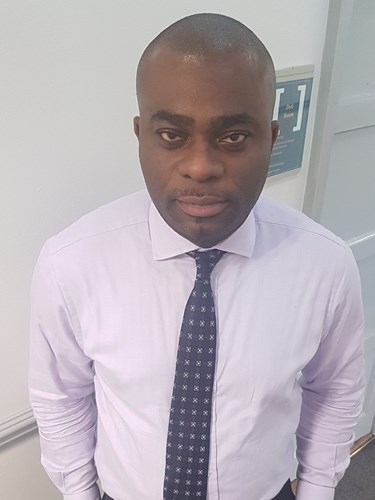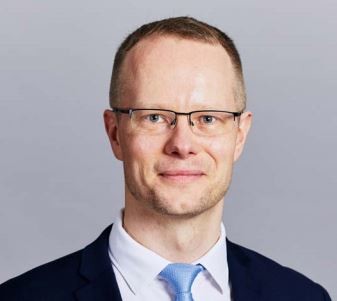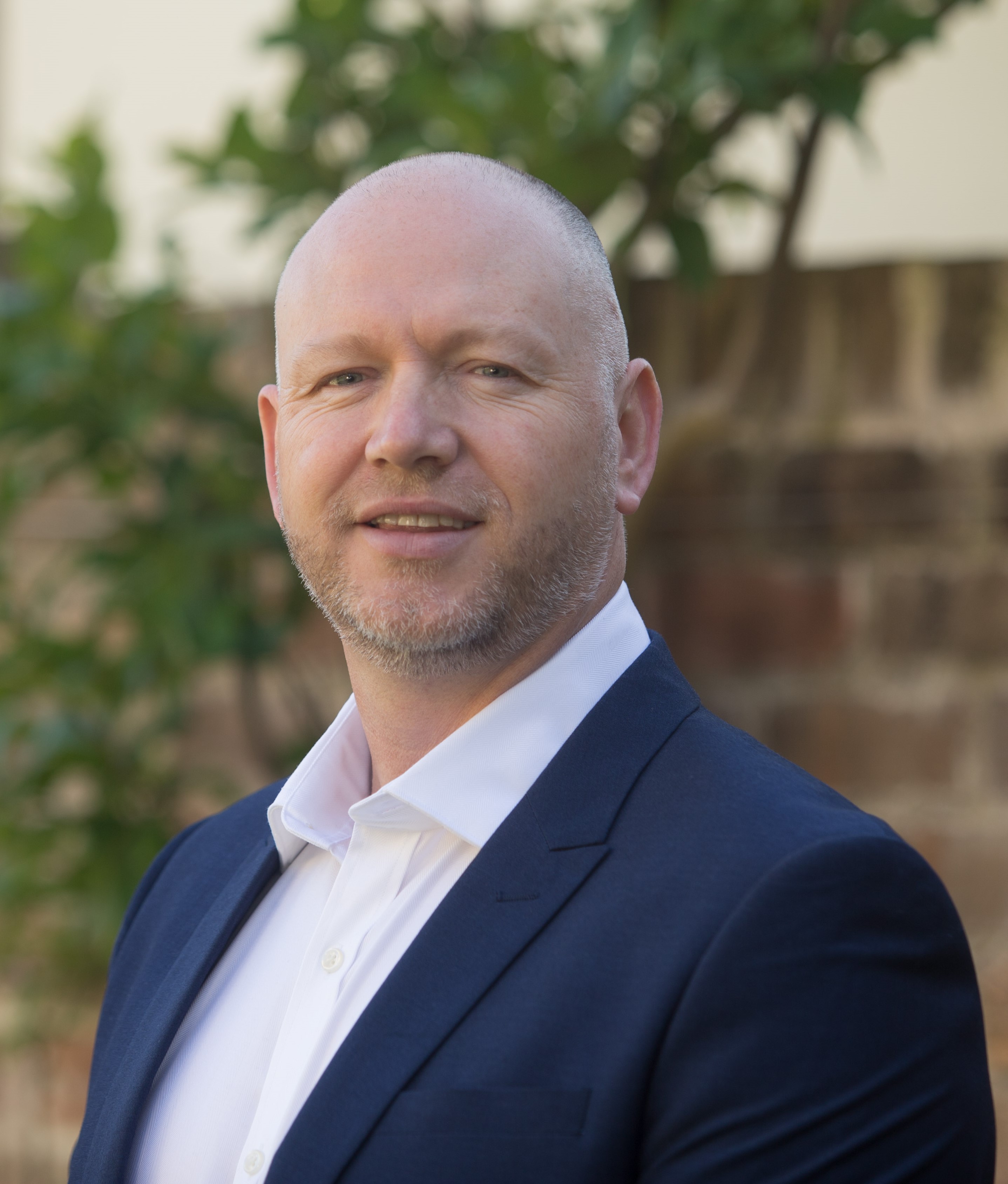Ola Omoyele: Risk Management Practitioner, OMRA Consulting
Ola Omoyele BSc, MSc, MSaRS, MAPM, MIRM
Risk Management Practitioner
OMRA Consulting
How did you get started in risk?
My interest in Risk started in 2003 at the Centre for Risk Management, School of Mathematical Sciences, City University when I embarked on my MSc Quality Management, Statistical Methods and Reliability course. Subsequently, I joined Transport for London (TfL) in 2007 as an Enterprise Risk Specialist working on the extension of the East London Railway Line major project (London Overground). It was really at TfL that I developed a thorough grounding and genuine affection for the Risk Profession.
Having had a solid grounding in a mature risk environment working on multi-billion pound rail infrastructure projects, I wanted a new challenge. So, in 2011, I joined Serco where I established the Risk and Issues Management team. At Serco, I had the chance to not only recruit my own team of risk specialists, I also established the Risk Management Framework to deliver and support all Transition and Transformation Programmes in UK and Europe. In 2013, I moved into a different division within Serco, Serco Consulting, where I worked as the Principal Consultant responsible for Risk Management. My experience at Serco exposed me to complex Change/Transformation Programmes, Projects, Operations and Bids in Rail, Transport, Construction, Architecture, Defence, Nuclear, Health (NHS), Information Technology, Shipping and Infrastructure. Since Late 2014, on a contract basis, in addition to Engineering and Construction, I have further been involved in Retail (including Banking and Finance) and Life Insurance.
Over the last 10 years, I have successfully implemented the Enterprise Risk Framework in multiple organisations. I have been fortunate to work on large, transformational projects where excellent risk awareness and management were integral to the success of the various projects.
What’s a typical day like as a Risk Management Practitioner?
As a Risk Management Practitioner who currently operates in the interim space (through OMRA Consulting Limited) across multiple sectors, there is really no typical day as such. However, certain activities are common to all my roles – these could range from developing risk registers, facilitating risk workshops, building and running Monte Carlo simulation models to running risk awareness/training sessions and providing guidance & advisory services to committees & governing boards.
What do you enjoy most about your job?
There are few. The ability and flexibility to apply the same techniques and tools across several challenges and across different layers in an organisation. Equally, the ability to demonstrate value added through the efficacy of Risk Management – especially given the difficulty for Practitioners in being able to justify value to Clients.
I enjoy the different challenges and responsibility that come with my profession. Analysis remain a strong lure for me as by carrying various types of analyses, I’m able to reduce the level of uncertainties and determine a few more certainties. Having the shrewdness to influence senior management in making very important commercial decisions directly or indirectly gives me the satisfaction of the value being added.
Last but not the least, I would say I enjoy the appreciation that comes directly from the client about the contribution I may have made to a subject or the business. This provides a sense of assurance and essence. Needless to say that this also leads to repeat business!
What are the challenges?
Risk Management is still a fast-evolving Profession albeit its principles date back the 17th century or even earlier. There are a few challenges and the most pertinent of all for me is still the lack of sufficient regard for Risk Management. This comes in different fashion including but not limited to:
(a) Inadequate investment
(b) Inadequate time, and
(c) The need to always have to demonstrate value-add or justify investment in Risk Management.
One would have hoped that the Financial Crisis which started in 2007/08 would have resulted in a fixation on the management of risk. Largely, risk, as an agenda item, remains at the bottom of the list for most boards instead of it being an integral part of all reviews right from the start.
In what way are your IRM qualifications relevant?
Personally, IRM’s International Diploma in Risk Management has been beneficial, most importantly, in terms of enhancing my overall understanding of the profession. The Diploma provided a great deal of assuredness in my interpretation and utilisation of the resources available.
The depth of materials covered meant I was well equipped with the current state of research in the field and provided opportunity to add value to some of the current challenges in the area and my work. Furthermore, the flexibility I had with the (previous Diploma) syllabus provided the opportunity to choose electives that addressed different sectors. For example, Architecture, Construction & Engineering, and Financial Services were very instrumental in my ability to support clients across these sectors.
In my humble view, everyone is a Risk Manager in some way or the other but the Diploma sets apart Practitioners from Managers.
What would you say to others thinking about joining IRM as a member?
I always recommend IRM to everyone in my professional capacity simply because everyone needs the basic understanding of the principles of risk management and, also, I find that people generally are interested in knowing a little more about this subject. Often when I mentor people who are not in Risk, I usually suggest they join as an affiliate member.
For those thinking about joining, I urge you to attend one or more IRM events to gauge whether this will be of interest or not.
How has your role developed and what are your career ambitions? Has being linked to the IRM helped?
I have been working in Risk solidly for over a decade and intend to develop and learn further. Equally, I’m keen to share knowledge – I learn even more during the process of knowledge sharing. I will also endeavour to leverage on IRM’s platform to achieve parts of these targets.
My association with the Institute has not only helped my growth in the field but also in connecting with some great professionals.
Top tips:
To get into and succeed in Risk Management, I’d say:
- Read and research to understand how best to get into it. For instance, get certified perhaps through International Certificate or International Diploma in Risk Management depending on the level of exposure/experience/education you currently possess. And don’t stop learning.
- Risk Professionals have to be shrewd and this comes with a degree of confidence which you can only obtain from good grounding in this field. Being forthright is an asset but apply this with a degree of composure and tact.
- Always consider the surroundings and broader before making your decisions. Be flexible and adaptable and always to seek to understand the business that you’re supporting – risk management does not operate in a vacuum.






